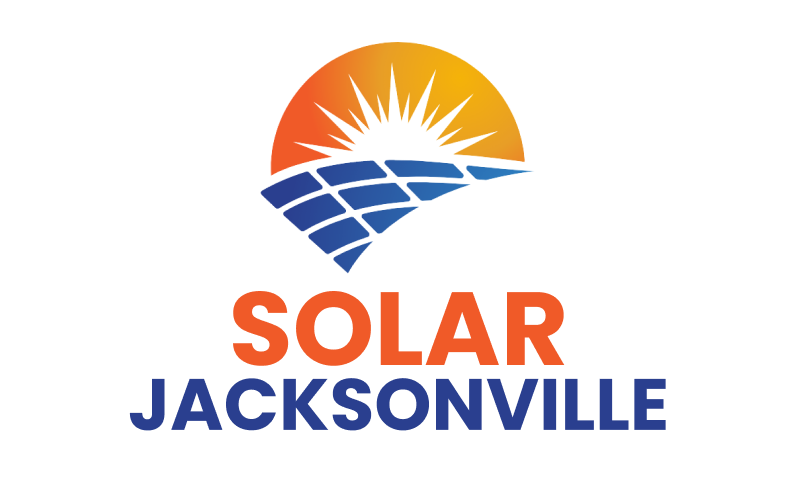COMMERCIAL SOLAR
Energy Solutions For Business Owners
Benefits of Commercial Solar Panels for Businesses
One of the highest overhead costs businesses face is the cost of electricity. Solar has become popular and a strategic decision in saving costs which helps cash flow management. Today, businesses can take advantage of the many benefits of utilizing solar power.
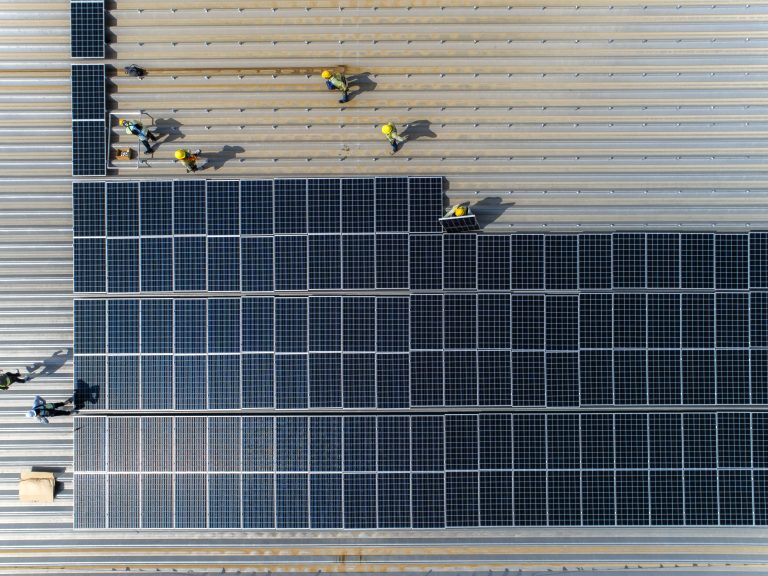
1. Solar power gives you a return on investment
The initial cost of switching your commercial building to solar power may be expensive, but consider it an asset. The return on investment and savings you get from solar power exceeds the upfront cost. You’ll be able to save money from high electricity bills over the years.
2. Reduce Operating Costs
In business, there are lots of unpredictable and unnecessary expenses. This can take a toll on your business if you’re unprepared. One of the expenses you want to control is electricity bills, with the help of solar panels your electricity bill will become easy to predict as this reduces your energy costs. You’re able to properly budget because you won’t have to worry about rising or fluctuating energy prices.
3. Tax credits and bonus depreciation
Installing solar panels gives you Investment Tax Credit (ICT) that provides 26% federal tax credits. Businesses can take an immediate first-year deduction on their solar installation with 100% bonus depreciation.
4. Increase property value
Installing solar panels in residential and/or commercial buildings helps increase their property values. This is one of the things that can grab a potential buyer’s attention, in case you want to sell in the future.
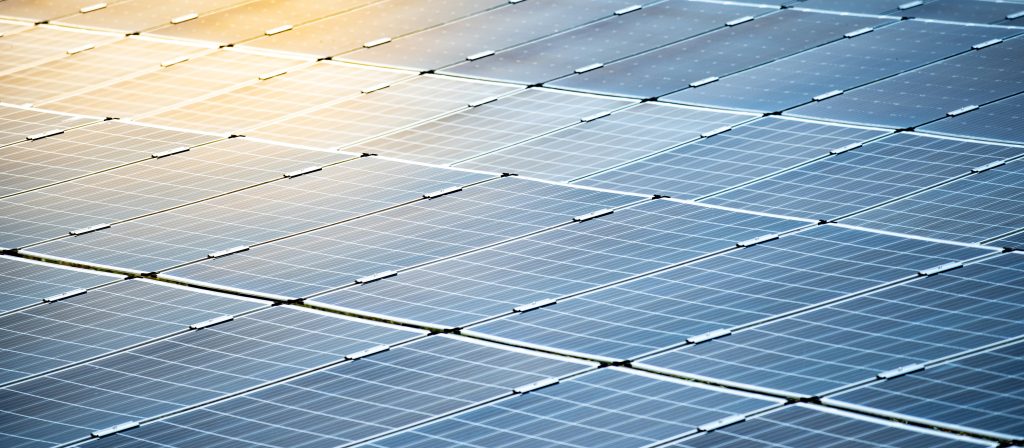
5. Low maintenance
The solar panels are built to be exposed to outside elements that can withstand wear and tear and harsh weather conditions. The photovoltaic cells that make up the solar panels make them durable so they rarely break down. This makes commercial solar panels virtually low maintenance and noiseless.
6. Helps with business branding
Many businesses are adding solar power to support a greener environment and at the same time market their business to commit to clean energy for customers who support companies with the same vision. This helps change your business to make a great impression and sends a positive message about your enthusiasm for sustainability.
7. Supports your local economy
You are boosting the local company every time you work with a solar panel installation company. The demand for solar panel installation increases which creates jobs for other people.
8. Reducing carbon footprint
Carbon dioxide emissions are released into the atmosphere through human activities such as driving, burning fossil fuels, and electric cooling & heating activities. These are all harmful emissions that trap and hold heat in the atmosphere by absorbing infrared radiation, leading to global warming. As a business, you can make a change and impact by switching to solar energy and reducing your carbon footprint. Going solar can help the environment because of its ability to generate power without releasing harmful emissions.
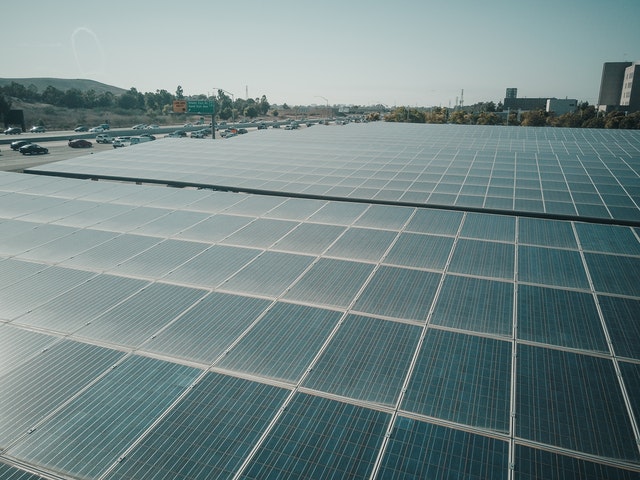
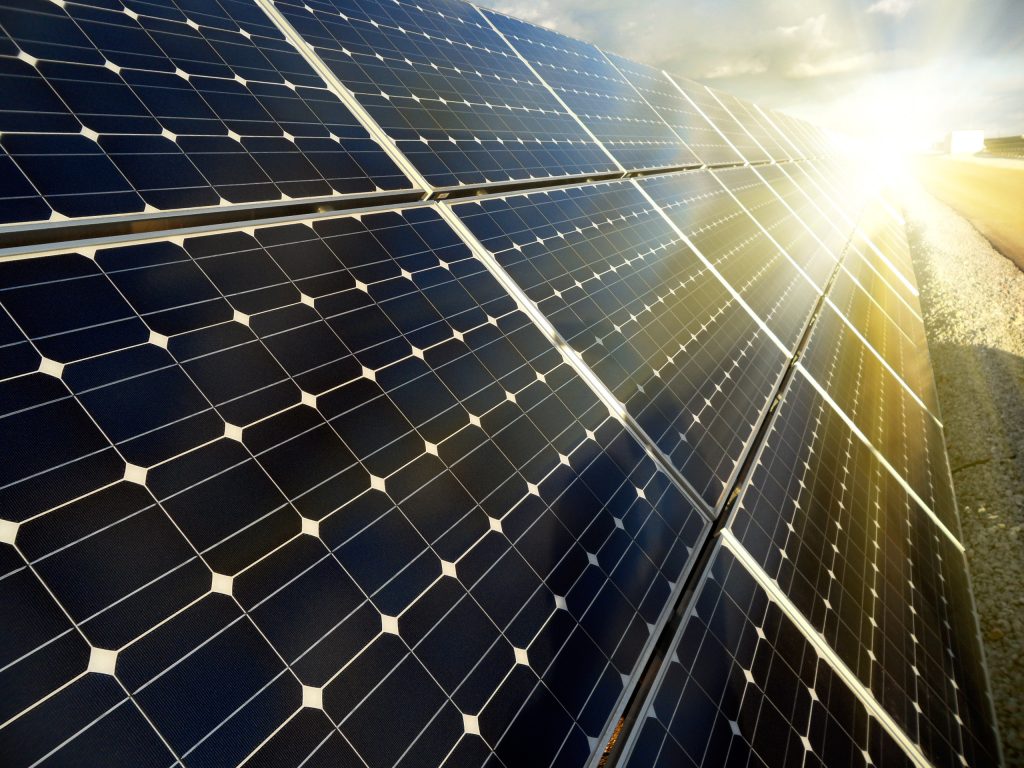
Types Of Commercial Solar Systems
Flat Rooftop Systems
The most common way commercial businesses go solar on-site is by Rooftop solar. The ideal candidates for hosting solar systems are establishments with flat roofs exceeding 50,000 square feet. Having sufficient roof space will ensure that the system can be sized to capture the commercial-scale solar incentives and produce significant renewable energy for yearly usage. A flat rooftop makes the installation of solar panels on a commercial building easier, safer, and faster.
Slanted Rooftop Systems
Commercial solar suppliers and installers work with businesses to take advantage of solar power; this includes working with roofs that are sloped/slanted. Slanted Rooftop systems require some type of penetration or anchoring into the roof, it may be drilled directly to the decking or attached to rafters. There are several mounting system options for sloped roofs such as being railed, rail-less, and shared rail. Rails are attached to the roof to support rows of solar panels that are usually positioned vertically and that are attached to two rails with clamps. Rail-less systems on the other hand are solar panels attached directly to hardware connected to the screws or bolts going into the roof.
Ground Systems
You can turn an unusable piece of land into an energy source by using a ground mount system. Ground-mounted solar systems have the same basic function, the systems are anchored to the ground and hold a massive number of stacked panels, often three to four times high. There will be two rails that support each panel, regardless if it’s oriented in landscape or portrait. They tend to obtain the highest ROI (return on investment) due to their layout, design, and sizes which can maximize the system’s effectiveness. They are similar to rooftop solar projects because they are typically placed in open fields and avoid shading. This type of solar system is easier to maintain and manage, they are more efficient at larger scales making them ideal for commercial spaces.
Solar Carport Systems
A solar carport is a shaded architectural structure with built-in solar panels that protects your vehicles from outside elements. The solar panels are attached to the top part of the structure to form a solar panel system. They are an excellent option for businesses who want to combine energy efficiency, functionality, and practicality since the carport will serve several purposes at once. After all, not all establishments have enough ground space and rooftops that can facilitate solar panels. Therefore, solar carport systems are conducive and a systematic solution.
Utility-Scale Systems
Utility-scale solar is defined as large solar power plants that produce electricity for the utility grid. The utility grid will then distribute the electricity to the end-users. The solar energy that’s being generated by the solar power plants is sold to utility companies and other large power merchants via Power Purchase Agreements (PPA). The two types of utility-scale solar are Concentrated Solar Power or Solar Thermal and Solar photovoltaics (PV) also known as solar panels.
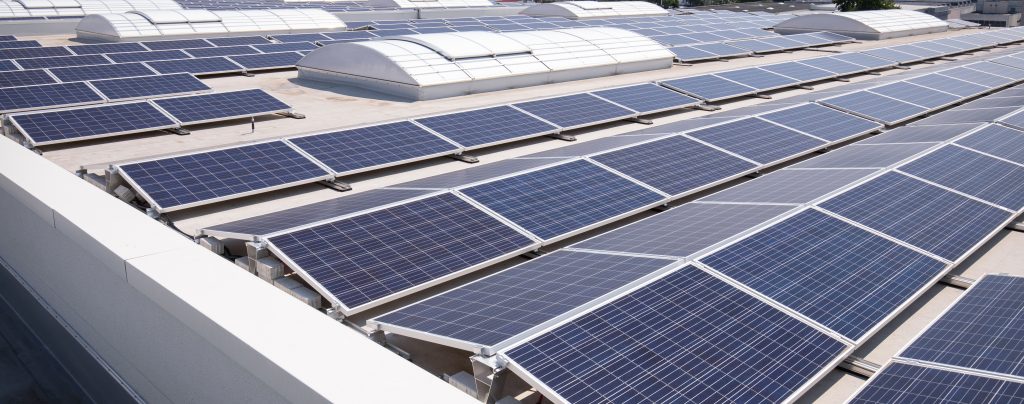
Commercial Solar FAQ
What can be powered in my business using solar energy?
Solar Electricity
Solar electricity is becoming increasingly accessible and popular among business owners. Using solar power as electricity in your office buildings helps save money by reducing the cost of electricity bills.
Solar Water Heating
Usage of solar energy extends to water heating systems. Businesses such as hotels, hospitals, restaurants, schools, etc., tend to need commercial water heaters. Fortunately, solar power provides the best and most affordable water heating solutions to create hot water for consumers.
Solar Heating
As with residential settings, it is also important for businesses in cold areas to include solar space heating systems that power radiant floors. Solar energy can help heat office spaces in the winter season.
Solar Ventilation
Solar ventilation in commercial and industrial settings can preheat the building’s air in cold weather, this helps reduce energy costs.
Solar Lighting
Solar lighting has become crucial in commercial buildings as this helps reduce cost and provides light to areas like sidewalks, pole lighting, parking lots, workplace lighting, sign illumination, and more.
Solar Transportation
Using solar transportation is being recognized but is not widely available yet. This may apply to businesses in the transportation sector such as buses, trains, and private and public transportation.
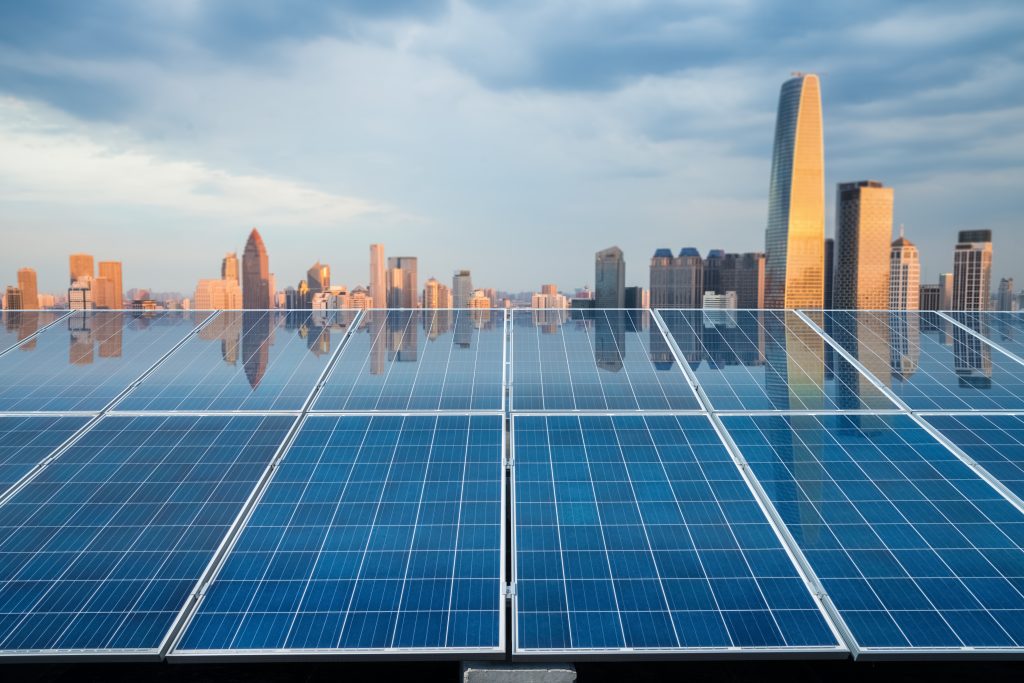
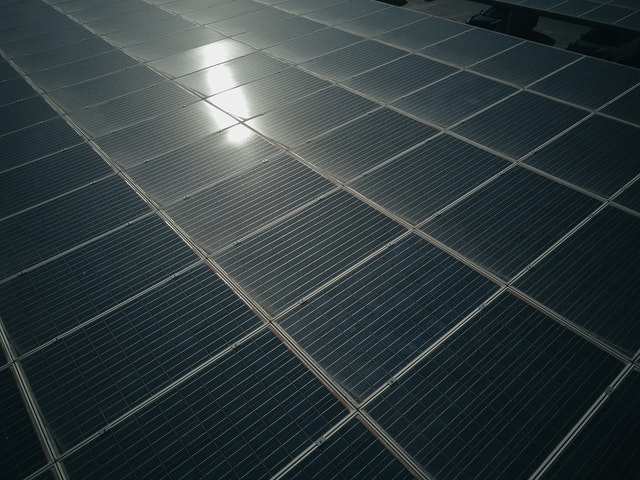
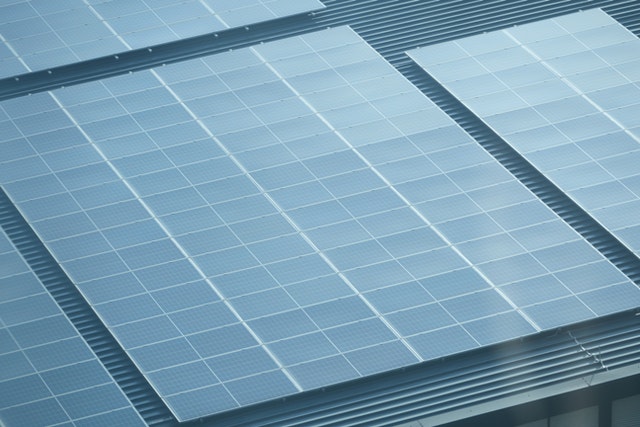
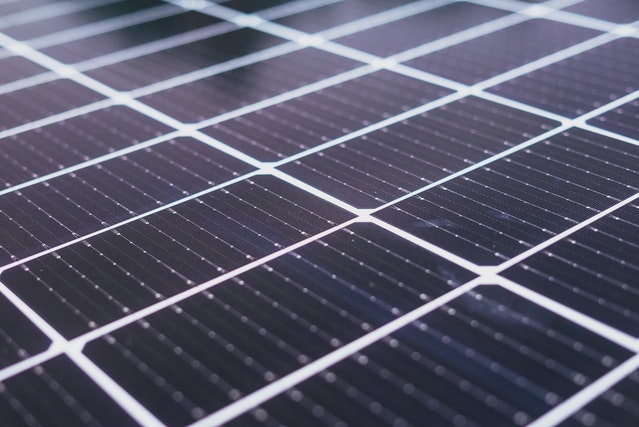
Is my roof right for solar?
There are several things to consider before installing solar on your commercial building:
- Space to Install a PV system – Identify whether the building has enough space to house a system and if the roof is durable to support them. Consider things such as roof structure, roofing materials, age of the roof, and size and weight of the solar system to be installed.
- What’s the pitch and angle of your roof? The directions your roof faces and its pitch will affect the amount of sunlight your solar system can get. Panels can be installed facing other directions, but you must consider the total sunlight hours they will receive. Your solar power company will provide you with options and solutions based on your commercial roof.
- How much electricity does my business consume? Small stores might not finish a massive amount of electricity compared to larger enterprises that run for 24 hours, installing solar can make them ideal candidates for solar systems.
How do I know if I have enough sunlight for solar?
Sun Hours
Focus on peak sun hours, this refers to the amount of sunlight that can be used to produce energy on any normal day, typically this is when the sun is higher in the sky. This will depend on your location, time of the day, and year.
Weather Conditions
Knowing how many sunny days in your area get compared to cold, cloudy, or rainy days can help determine if you’ll have enough sunlight for your solar panels. Generally, sunny, clear days can produce more energy.
Roof Pitch and Direction
The pitch and direction can also have a big impact in figuring out if you’ll get enough sunlight for your solar to power your business.
Shading and Building
Since you need sunlight for your solar panels to provide electricity to work optimally, shading like trees and buildings obstructing your roof may interfere.
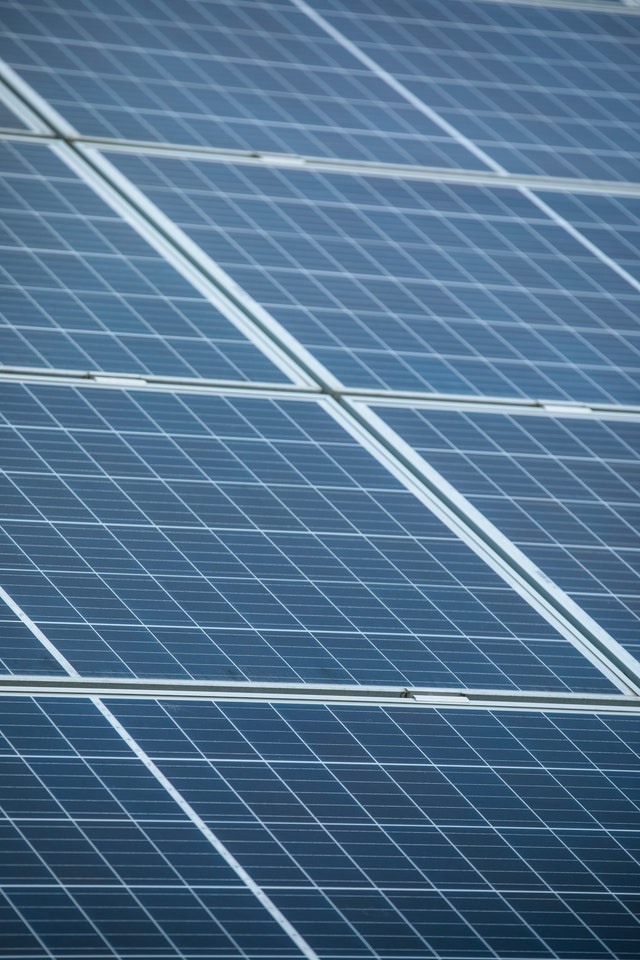

Can my roof support the weight of the solar array?
While roofs are initially made to keep us safe and dry, we can also utilize the unused space to install a solar system to our advantage. To guarantee if your existing roof is qualified to handle the additional weight of the roof-mounted solar system, a third-party architect or engineer will need to evaluate your building. Should your roof be eligible, you will be provided a certificate of approval to start the project. If your roof cannot support the added weight, you’ll be recommended ways to adjust the roofing system to safely install the solar panels.
How do I compare prices among different solar contractor bids?
Choosing a solar company can be a difficult decision if you don’t know where to start. Here are key items to look for in comparing prices and top-rated solar contractors for your business:
- Licensed and Insured
- Experience
- Payment Options
- Warranty
- Quality of Work
- Materials, Technology, Techniques
Can I have a solar system on my business and still be connected to the utility?
Yes, your solar system will be connected to a net energy meter that calculates and stores all the electricity your solar panels produce. If there’s unused solar energy from your solar panels, the energy will return to the electrical grid through the net meter. If your establishment will require more energy than what your solar panel can produce, you will source the electricity from the grid through the meter as it normally would. Your building can be connected to both sources of electricity- solar panels and the traditional grid. Your main source of energy will be coming from photovoltaic, once you deplete the solar power from its storage, it will automatically switch to the traditional grid.
Are there tax credits or any other incentives to go solar?
Federal Solar Investment Tax Credit (ITC)
Most Florida residents are qualified to receive the Federal Solar Investment Tax Credit which is also called the solar ITC. This program allows eligible business owners to deduct up to 26% of their solar panel installation cost from their federal income taxes. In addition, energy storage systems are also included in the ITC incentives when paired with rooftop solar, that’s why many Florida business owners add battery storage with their solar systems.
Florida Net Metering Program
Net energy metering is a billing mechanism that allows eligible business owners to earn credit toward their electricity bills. Your electricity provider will only charge you for the net usage at the end of the month.
Property Tax Exemption
Florida boosts the value of your property by providing a 100% property tax exemption for commercial solar panels. According to the Florida Department of Revenue, the exemption applies to equipment/tools and any component currently certified by Florida Solar Energy Center as a qualifying solar energy element. This may include:
- Energy storage unit (solar battery)
- Inverters and mounting hardware
- Solar panels
- Other accessories necessary for the function
- Electrical equipment including disconnect switches & wiring
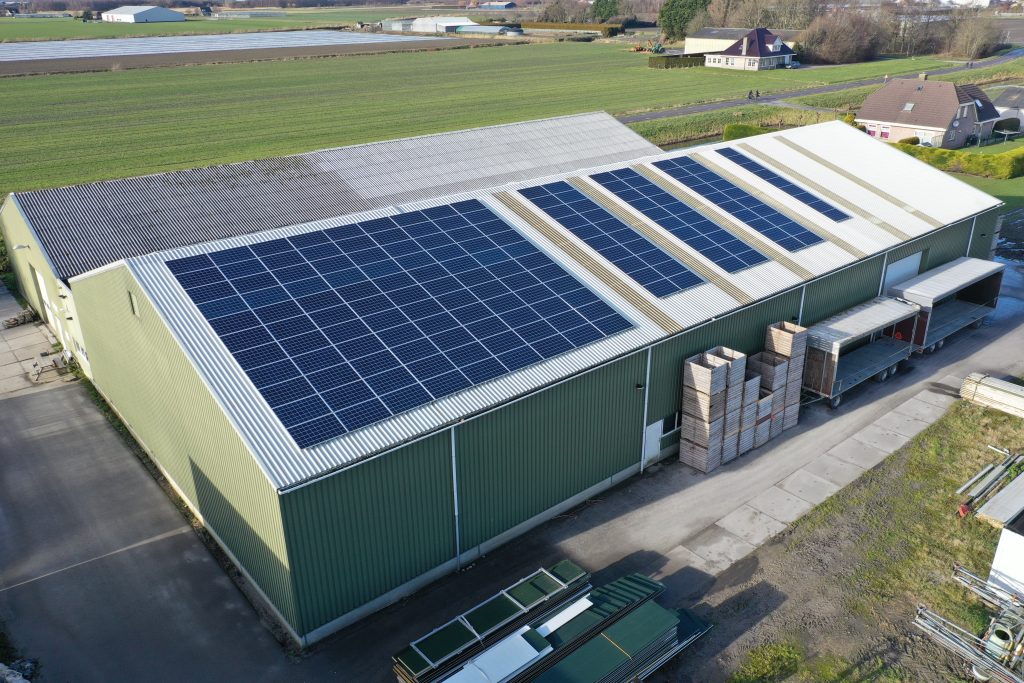


Save Money Now- Get A FREE Quote!
Are you ready to switch your business to solar energy? Solar Jacksonville is here to help! When it comes to installing solar panels whether it’s a small or big business, there are specific requirements, types of equipment, and tools needed to handle them carefully. We guarantee professional installation with the latest tools and installation techniques that can help you maximize the performance of your solar panel and get the value of your money’s worth. With our help, you can reduce costs with your month-to-month electricity bill while making a positive impact on the environment. Schedule an appointment with us. Contact us and GET A FREE Quote.

